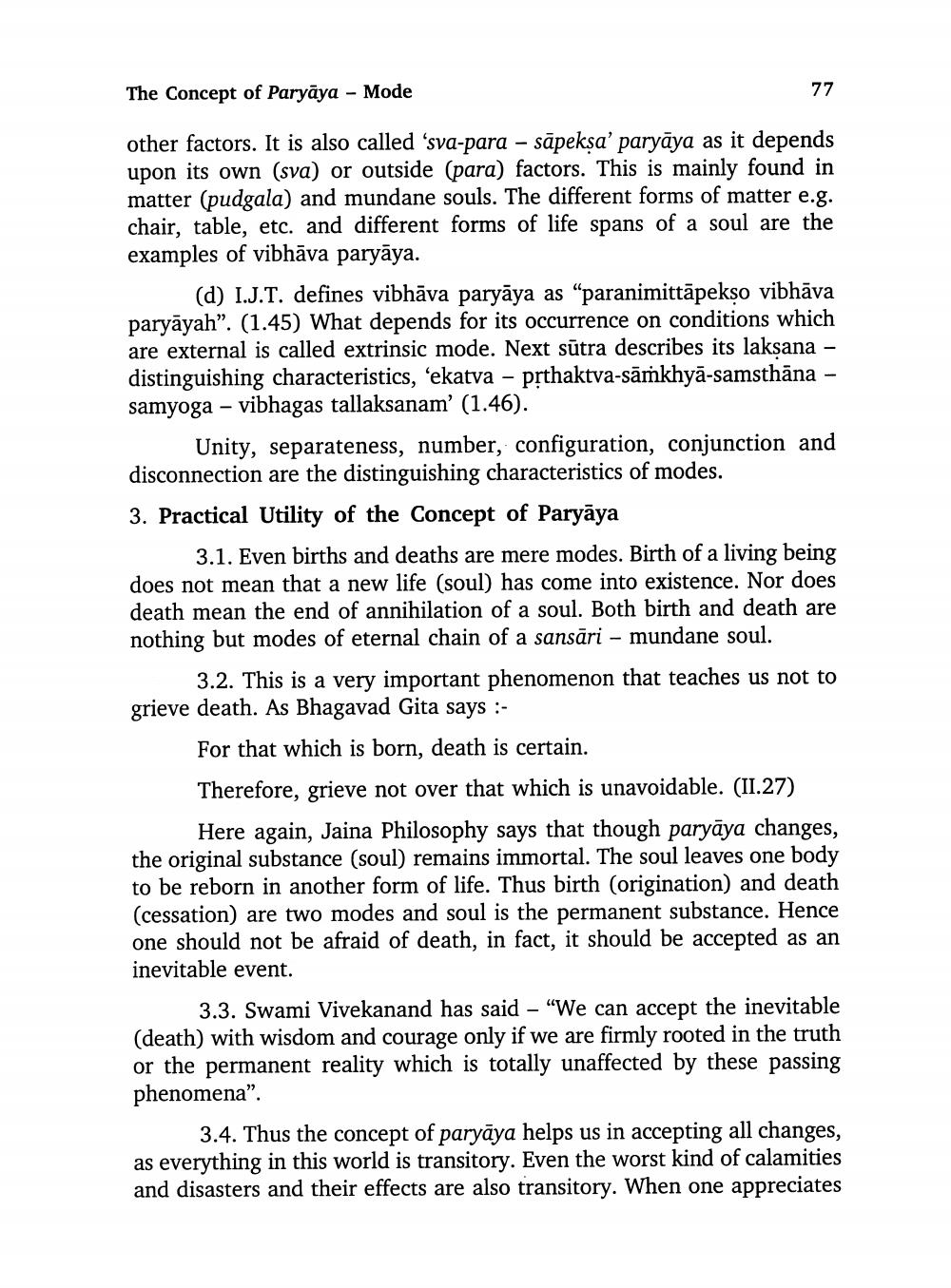________________ The Concept of Paryaya - Mode 77 other factors. It is also called 'sva-para - sapeksa' paryaya as it depends upon its own (sva) or outside (para) factors. This is mainly found in matter (pudgala) and mundane souls. The different forms of matter e.g. chair, table, etc. and different forms of life spans of a soul are the examples of vibhava paryaya. (d) I.J.T. defines vibhava paryaya as "paranimittapekso vibhava paryayah". (1.45) What depends for its occurrence on conditions which are external is called extrinsic mode. Next sutra describes its laksana - distinguishing characteristics, 'ekatva - prthaktva-samkhya-samsthana - samyoga - vibhagas tallaksanam' (1.46). Unity, separateness, number, configuration, conjunction and disconnection are the distinguishing characteristics of modes. 3. Practical Utility of the Concept of Paryaya 3.1. Even births and deaths are mere modes. Birth of a living being does not mean that a new life (soul) has come into existence. Nor does death mean the end of annihilation of a soul. Both birth and death are nothing but modes of eternal chain of a sansari - mundane soul. 3.2. This is a very important phenomenon that teaches us not to grieve death. As Bhagavad Gita says : For that which is born, death is certain. Therefore, grieve not over that which is unavoidable. (II.27) Here again, Jaina Philosophy says that though paryaya changes, the original substance (soul) remains immortal. The soul leaves one body to be reborn in another form of life. Thus birth (origination) and death (cessation) are two modes and soul is the permanent substance. Hence one should not be afraid of death, in fact, it should be accepted as an inevitable event. 3.3. Swami Vivekanand has said - "We can accept the inevitable (death) with wisdom and courage only if we are firmly rooted in the truth or the permanent reality which is totally unaffected by these passing phenomena". 3.4. Thus the concept of paryaya helps us in accepting all changes, as everything in this world is transitory. Even the worst kind of calamities and disasters and their effects are also transitory. When one appreciates




